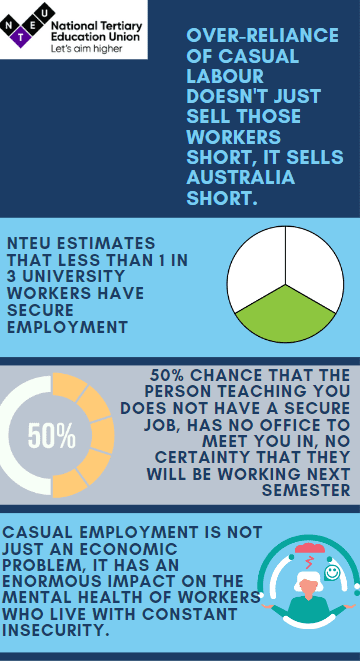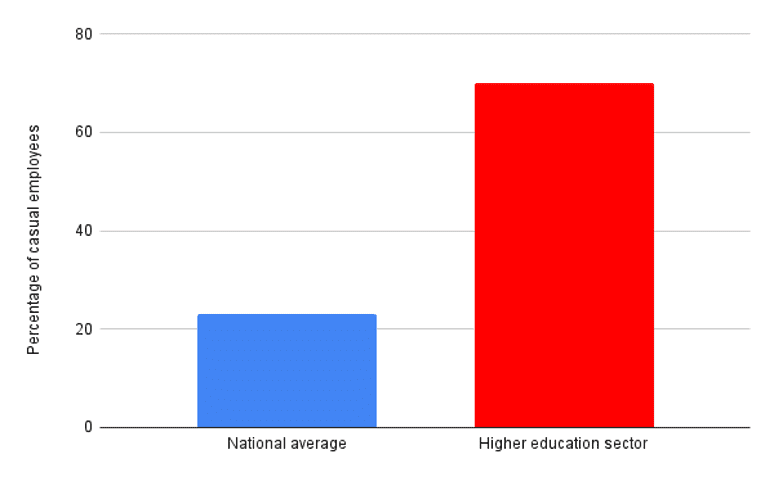Higher education employees across Australia were striking this week, as a part of a co-ordinated week of industrial action. Protests culminated in Victoria, with staff from five major universities walking out, causing classes to be rescheduled and cancelled.
The National Tertiary Education Union (‘NTEU’) has identified the gradual casualisation of the industry as a key issue on which they are calling for change.
The Union estimates that 7 in 10 higher education employees, are employed on a casual basis. This amount exceeds the national average by 47 percentage points.
NTEU president, Alison Barnes says that casual employment fails to provide workers with the necessary sureties of a stable life.
“When people are stuck in insecure work it doesn’t just hold back their work, it holds back their life”.
According to the data published by the Australian government, the rate of casualisation within the industry depends heavily on someone’s specified role within an education institute. For example, lecturers enjoy a 73 per cent rate of full time employment, as opposed to tutors, 81% of who, are casuals

The rate of casualisation of university tutors, specifically, is not reflected across the sector. High School and Primary School teachers are employed on a full time basis at a rate of 76 and 65 per cent respectively.

The NTEU contend that the increased rates of casualisation in this sector doesn’t only impact on employee’s themselves, noting that insecure jobs result in mental health issues and difficulty with accessing resources, factors which also impact students.

A representative of Federation University Australia has reasoned that a drop in income being received from international students plays a part when coming to the negotiating table with employees.
“Federation University Australia, like the university sector more broadly, has faced significant financial challenges due to the impacts of the pandemic, volatility in the global economic markets, a more restrictive approach to international student visas and inflation,” They said.
Data released by the Australian Bureau of Statistics reveals that international students enrolments in Australian universities have dropped since the COVID-19 pandemic, with a peak in 2018 of over 700,000, which dropped to 400,000 in 2020. Levels of international students however are once again, in an upward trend.
Casualisation is not the only issue that the NTEU has identified in the working conditions of higher education employee’s, they are also campaigning for more reasonable workloads, safer workplaces and the abolition of wage theft.
The NTEU co ordinated week of industrial action is set to finish on Friday.

With reporting from by Maryam Sulaiman.

